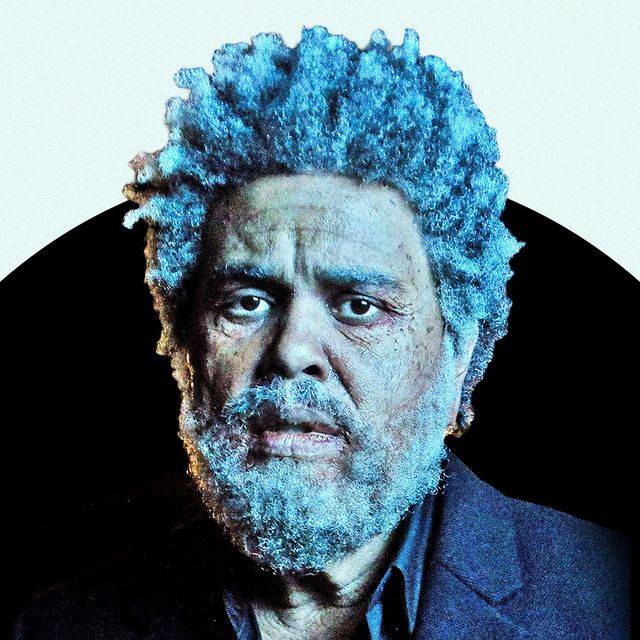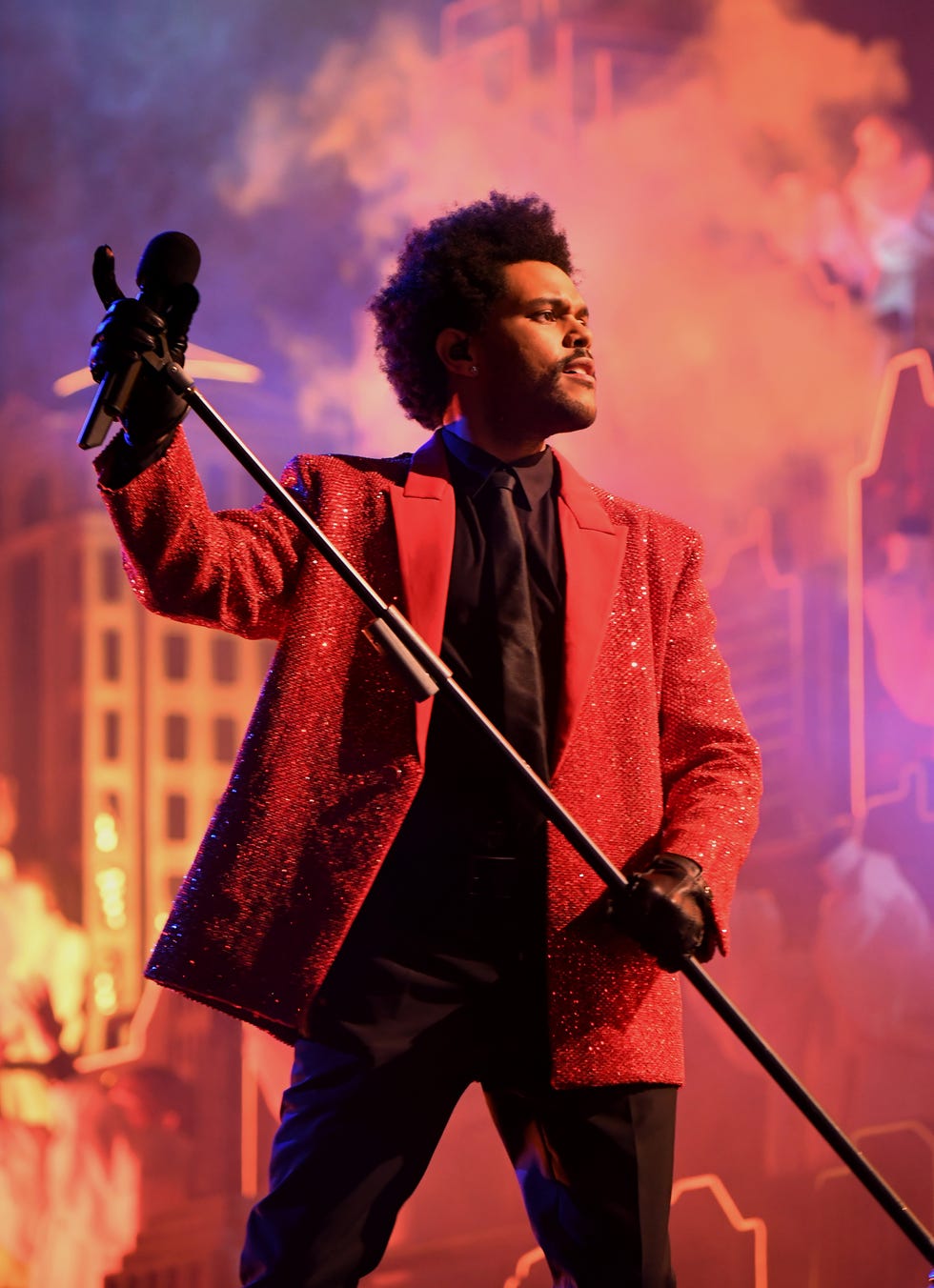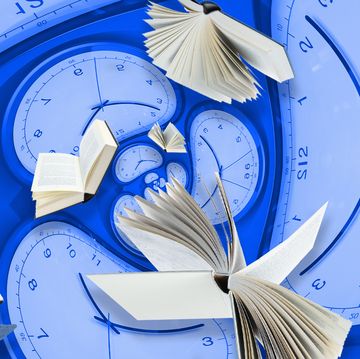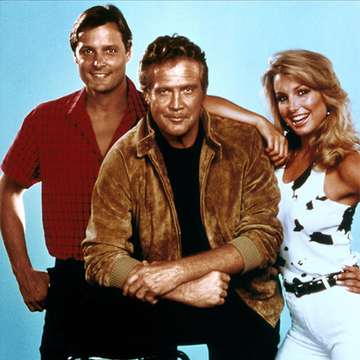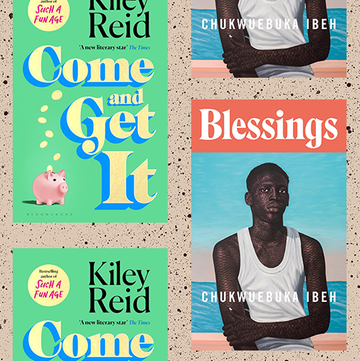At the end of the credits for Purple Rain, Prince included the invocation “May U Live 2 See the Dawn.” It seemed curious at the time, but the image of daybreak would reappear occasionally during the rest of his career—1994’s Gold Experience album, the first released after he changed his name to an unpronounceable symbol, opened with the words “Welcome 2 the dawn.”
The Weeknd doubtlessly knows all this; Prince is one of his idols (in fact, Prince’s final appearance on television was presenting him with an American Music Award). Beyond that, though, the Canadian singer-songwriter born Abel Tesfaye is a serious student of his musical and cultural predecessors. When I interviewed him as he was finishing work on his 2016 album Starboy, the studio walls were papered over with posters and photos of his heroes and references—the Ramones, A Clockwork Orange, Freddie Mercury.
His Purple Majesty isn’t actually a dominant element on the Weeknd’s new album, Dawn FM, out now. Despite lyrics that quote “When Doves Cry” and “Purple Rain,” Michael Jackson is a much more audible presence. But it’s the best example yet of the 21st Century’s most influential pop star pulling off Prince’s greatest trick—synthesising a diverse range of sources to create something entirely distinctive.
A long list of collaborators, from Beach Boy Bruce Johnston to Lil’ Wayne, were involved in the project, but pop mastermind Max Martin (Britney Spears, Taylor Swift) and experimental electro-whiz Oneohtrix Point Never are credited alongside Tesfaye as Executive Producers. This balance of classic and daring is perfectly calibrated—the Weeknd has long explored the friction between new wave and old-school R&B, but it’s never felt so confident; both timeless and futuristic, familiar but not retro.
The Weeknd’s last album, After Hours, was released on March 20, 2020—one week after the pandemic shut down the world. But even without the chance to tour, he dominated our lockdown attention, from his halftime performance at the crowd-free Super Bowl to his controversial and suspicious absence from the Grammy nominations to tabloid coverage of his romantic life. It culminated in the irresistible, omnipresent “Blinding Lights,” which parked in the Top Ten for a full year and is now the biggest Billboard Hot 100 single of all time.
Since keeping himself anonymous on his early breakthrough mixtapes, the Weeknd has been defined by his Prince of Darkness persona, with songs that revel in decadence and self-loathing, in erasing pain through drugs and sex that lead to more pain. But as he started working on music during the pandemic, he felt that he needed a new direction.
He hit on the idea of purgatory, which he “always imagined would be like being stuck in traffic waiting to reach the light at the end of the tunnel,” he said. “And while you’re stuck in traffic, they got a radio station playing in the car, with a radio host guiding you to the light and helping you transition to the other side.”
Purgatory. Kind of like how most of us are living now, trapped in our homes, waiting for something to release us, fearing the plague that surrounds us. And if you’re out until After Hours, what comes next, of course, is the Dawn.
The concept is made most literal in spoken breaks from a DJ voiced by Tesfaye’s fellow Canadian and real-life neighbour Jim Carrey (even the idea of structuring an album like a radio station goes back at least as far as The Who Sell Out in 1967). But far more interesting is the way the singer’s own transformation, and redemption, play out over the course of the sixteen tracks.
The first third of Dawn FM feels like the Weeknd of old. “It’s 5 a.m, I’m high again,” he sings (in a posh, put-on British accent) on the Depeche Mode-ish “Gasoline”; he follows, on “How Do I Make You Love Me?,” by pleading “I need a breakthrough” over icy, skittering synths that sound like something ripped from a nearby gaming console. But after the “Thriller”-like strings and scratching guitar of the impeccable “Sacrifice,” a brief and chilling monologue by Quincy Jones changes the tone.
Jones addresses the impact our upbringing can have on our adult selves, and instantly the album shifts into a more introspective, self-reflective mode. In a feather-light voice, the Weeknd sings to a former lover that “The last few months I’ve been working on me, baby/There’s so much trauma in my life.” On several songs, he talks of taking responsibility for his actions and his partners—a long way from his characteristic reckless, empty thrill-seeking—and even insists on monogamy on the percolating “I Heard That You’re Married,” claiming “I’m way too grown for that deceiving.”
Not that these lessons have come easily. “I was so starry-eyed/And now I’m so cynical,” he offers on “Starry Eyes,” and after rattling off some of his recent accomplishments (“front page of Billboard,” “celebrated Super Bowl”) and conveying his innocent wonder at love and life on “Here We Go…Again,” Tyler the Creator jumps in to chant “You gon’ sign this pre-nup,” A phrase on “I Think There’s Someone Else” wraps it up: “I don’t want to be a prisoner of who I used to be.”
And then, on Dawn’s final sung track, “Less Than Zero,” the Weeknd just…lets go. Over a synth-pop backing that could be a-ha or A Flock of Seagulls, he admits “I try to hide it, but I know you know me/I try to fight it, but I’d rather be free,” wrapping things up over a simple strummed guitar with “You tried your best with me, I know.” The song is followed by a Dr. Seuss-ian rap by Carrey that spells out the need for making peace with yourself too explicitly, but the job has been done.
The narrative construction of Dawn FM is impressive enough; the fact that it’s matched by a similar musical progression—starting more upbeat and dance-based (last year’s hit “Take My Breath” has been extended with a mesmerising infinity loop pulse reminiscent of Donna Summer’s “I Feel Love”), dipping into smoother ballads in the middle and then picking back up—is masterful. It’s consistently distinguished by the Weeknd’s greatest strength, a sense of melody so often missing from contemporary pop, which can sometimes feel like a producer’s amusement park ride, and by his airy and plaintive voice, a next phase beyond gospel-based R&B delivery.
One week into 2022, it’s obviously impossible to know whether the Weeknd has already delivered the album of the year. But with Dawn FM, he’s given us the one to beat.
Author and music journalist Alan Light is the former Editor-in-Chief of Vibe and Spin magazines. His books include The Holy or the Broken: Leonard Cohen, Jeff Buckley, and the Unlikely Ascent of "Hallelujah."
